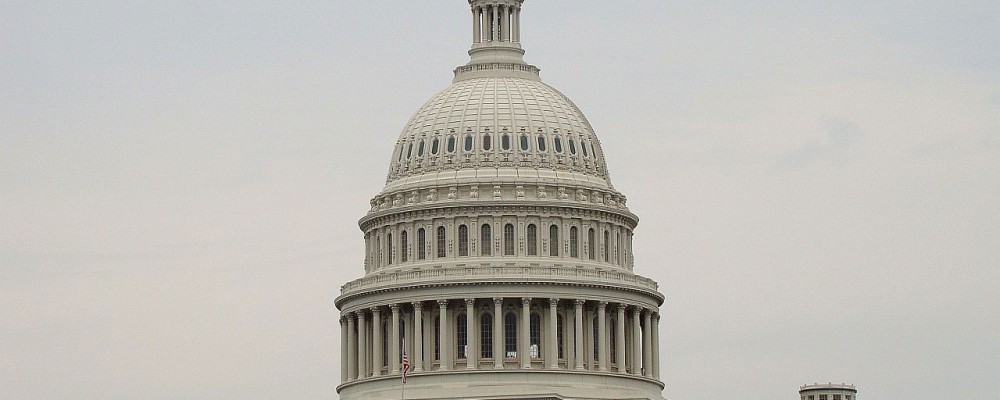Are Governments Amoral?

 What do you think when I say that governments are amoral? You probably think one of three things. If you are the first type of person you probably thought “Holy crap, how can this guy be so oblivious to all the good things governments do?” The second type of person sighs and says, “Libertarians…” while rolling his eyes. The least common type of person would reply by saying, “I finally found a kindred spirit!”
What do you think when I say that governments are amoral? You probably think one of three things. If you are the first type of person you probably thought “Holy crap, how can this guy be so oblivious to all the good things governments do?” The second type of person sighs and says, “Libertarians…” while rolling his eyes. The least common type of person would reply by saying, “I finally found a kindred spirit!”
Yes, I know the belief is not extremely popular or even commonly thought about, but it is an important subject and one that deserves some contemplation.
Now, before I actually show you why I believe that governments are amoral, let me begin by clarifying what the word “amoral” means. If you are the first type of person you probably thought it meant something along the lines of “immoral,” “evil,” or “bad.” Such is not the case. Amoral is defined as, “being neither moral nor immoral; specifically : lying outside the sphere to which moral judgments apply.” (Merriam-Webster)
Most people’s knee jerk reaction to this idea is to blow it off as ridiculous. They immediately throw the concept out because it is obvious that governments can be used to do moral or immoral things, and therefore people conclude that governments cannot be amoral. However, I would ask of you to not immediately disregard this idea, but to instead listen to my case for the concept, and to perhaps give it some serious thought.
I am a debater, and when I first heard that the NCFCA (National Christian Forensics and Communications Association) Lincoln Douglas debate resolution was about governments’ moral obligations, my first reaction was, “Governments are amoral!” Yeah, I’m a nerd. Get over it.
In all seriousness, however, there is an axiom of economics that clearly shows that governments are amoral entities. Here is how there argument goes:
Austrian economists (and no, Austrian economists are not from Austria, they are economists that hold a certain set of beliefs) hold that only individuals can act. This makes sense when you think about it. Group action is simply a bunch of individual actions. If I am with a group of friends and we choose to go Starbucks, that decision was not made by the group per se; instead, it was made by a bunch of individuals.
Critics of this axiom argue that people act differently in groups and that this argument somehow proves that collective action must be different than individual actions. This argument is completely incoherent. Groups do not have brains or bodies by which they decide to go to Starbucks to get a coffee. No, people have brains and legs and decide to go get themselves some heaven in a cup from the ultimate hipster coffee shop.
Of course, as of yet, this argument does not really prove that governments are amoral, but that is because it is only the first contention which we must establish. Our second assertion is the logical conclusion of our previous argument – this conclusion is that only individuals are moral actors. Think about it. If only individuals can act, then only individuals can have moral obligations. Saying that something that cannot act can have moral obligations is like saying that a hammer has moral obligations. This makes no sense. Moral obligations come from the ability to act, and only individuals can act.
The inevitable conclusion is that governments are not moral entities in and of themselves. If only individuals can act, and moral obligations come from the ability to act, then governments cannot have moral obligations. The syllogism is sound.
At this point you have probably come up with a few objections. The most obvious objection is that individuals can be in governments, and from this many of you have probably rejected my conclusion. The second objection is that governments can have moral or immoral laws, and that governments must therefore be moral actors. I will address each in turn.
Firstly, if you object to my conclusion because governments have individuals in them, I will refute your objection with an analogy. Saying that governments have moral obligations because they are composed of people is like saying that cars have moral obligations because they have drivers. It is obviously ridiculous to claim that cars have moral obligations, and the same goes for governments. A car is not morally obligation to refrain from hitting pedestrians. No, that obligation is solely the driver’s moral obligation.
Now of course you realize that my analogy is flawed because, unlike the driver in the car, the people in government are a part of the government. La réfutation: Governments are not solely composed of people, and even if they were, only the individuals would have the moral obligations, not the government as a whole. Indeed, if governments changed whenever their officials changed, the U.S. government would no longer exist after George Washington’s presidency ended. Furthermore, the English government is the same government today as it was fifteen years ago, granted it has probably changed quite a bit. Indeed, the same holds true for our government. We have the same government under the Obama Administration as we had under the Bush Admin. It may have evolved, but it is the same government.
Finally, we see that we are forced to conclude that governments are not dependent upon their officials for their existence, but instead governments must exist beyond their officials. When we examine the definition of government we see this to be true. Government is defined as, “the system by which a state or community is governed.” (Oxford Dictionary) Systems cannot have moral obligations, government is a system, and guess what, my thesis is yet again proven true.
Secondly, if you object to my conclusion because you have observed that governments can have moral or immoral laws, I will now address this issue. I would actually reject the idea that governments can have moral or immoral laws because the laws themselves are just ink and paper, it is the execution of the laws that is immoral. A car that is being used to run people down is not immoral, it is the drivers actions that are immoral.
Before we end this discussion, I will quickly cover some of the implications of this belief. Chiefly, this belief places responsibility solely on the individuals. No longer is it that the government is immoral for its waste, but instead senators Joe Shmoe and John Brown are responsible for wasting billions. Instead of simply blaming the whole entity, the realization that governments are amoral requires individual accountability. Sure, we can say the government is immoral because it let several U.S. citizens get killed in Benghazi, but responsibility is best upheld when we realize that it was actually official XYZ’s fault.
Another huge impact of this belief, and indeed an indicator that you subconsciously believed this previously, is that only the responsible parties are held accountable. If congress passed a bill that would allow the government to murder its citizens, someone who recognizes that governments are amoral will realize that the fifteen senators who voted against it are not immoral. If you believe in collective responsibility, you must necessarily believe in collective accountability. We all know that the senators that voted against it should not be tried and imprisoned with the rest of the government, but instead the accountability should only be applied to those responsible for the evil. If you believe in this, it is a sign that you subconsciously already knew that moral obligations are limited to individuals.
In conclusion, I believe that the belief in amoral governments does deserve a second chance. The logic is sound, the objections are really not true objections, and many of us already subconsciously believe this to be true. Our knee jerk reaction to put this idea out probably stems from the silence on the issue. We never hear it discussed and so we assume it must be ridiculous. However, I believe that we should all give this idea a second look, and perhaps eliminate some of our fallacious beliefs in the process.
Discussion — One Response